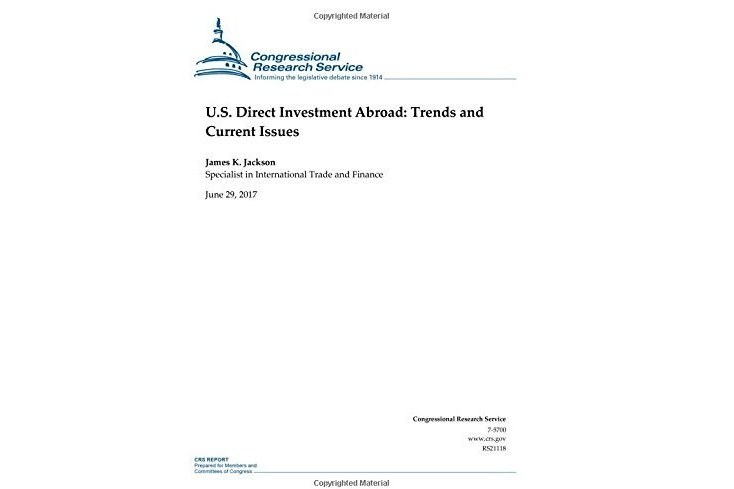《U.s. Direct Investment Abroad: Trends and Current Issues》是一本圖書。
基本介紹
- 外文名:U.s. Direct Investment Abroad: Trends and Current Issues
- ISBN:9781973754015
內容簡介
The United States is the largest direct investor abroad and the largest recipient of foreign direct investment in the world. For some Americans, the national gains attributed to investing overseas are offset by such perceived losses as offshoring facilities, displacing U.S. workers, and lowering wages. Some observers believe U.S. firms invest abroad to avoid U.S. labor unions or high U.S. wages, but 74% of the accumulated U.S. foreign direct investment is concentrated in high-income developed countries. In recent years, the share of investment going to developing countries has fallen. Most economists argue that there is no conclusive evidence that direct investment abroad as a whole leads to fewer jobs or lower incomes overall for Americans. Instead, they argue that the majority of jobs lost among U.S. manufacturing firms over the past decade reflect a broad restructuring of U.S. manufacturing industries responding primarily to domestic economic forces. In recent Congresses, Members have introduced a number of measures that would affect U.S. multinational companies in their foreign investment activities. In the 115th Congress, H.R. 685 and S. 247 (Bring Jobs Home Act) would provide certain tax exemptions to U.S. multinational firms to induce them to redirect economic activity from a foreign subsidiary to a domestic U.S. operation. In the 114th Congress, Members also introduced similar measures, including H.R. 297, the Stop Tax Haven Abuse Act of 2015, introduced by Representative Lloyd Doggett on January 13, 2015, and companion measure S. 174, introduced by Senator Sheldon Whitehouse; and H.R. 415, the Stop Corporate Inversions Act of 2015, introduced by Representative Sander Levin on January 20, 2015, and companion measure S. 198, introduced by Senator Richard Durbin. While H.R. 415 and S. 198 are directed at tax inversions, H.R. 297 and S. 174 address a number of tax and financial issues relative to U.S. multinational firms, including the use of foreign tax havens to evade U.S. taxes; money laundering; corporate offshore tax avoidance; and corporate tax inversions.

